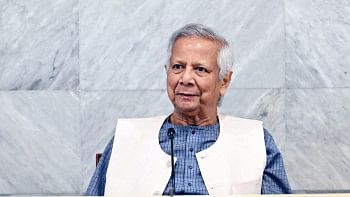Is being an executive committee member a big deal?

Student clubs and forums seem to be a really big deal in universities. Like every other organisation these clubs also have a top management for overseeing activities, managing events, and what not. The top management otherwise known as the executive committee are the ones taking all the decisions. Each member of this committee is a person deemed fit to bear the spectrum of responsibilities that comes with the posts they're promoted to. Many deem being an executive member a sheer waste of time and many emphasise on the opportunities it provides to an individual in the coming stages of life. So today we'll try to figure out if being an executive member of a club actually helps you along the way.
The real-life working simulation
Undoubtedly, this has to be one of the key reasons why one would like to be an executive committee member in the first place. Being an EC member means being responsible for a few things, like member activity and work output, dealing with logistics firsthand, scheduling an event A to Z, dealing with university authority, taking decisions that have real consequences, or the morbid feeling of letting an unproductive member go albeit them being a very positive person to be with. All this is basically a foreshadow of what you may have to deal with when you're in a job. The magnitude obviously varies but the stress and responsibilities have many things in common. So, chances are you'll come out with a hefty amount of experience on managing people, working under steep odds and having to balance personal and work life on a hanging scale. Sounds like a good deal if you're willing to put up a fight in your professional life.
The networking opportunity
Networking is perhaps the most salient competitive edge one can have over another. Every time there's an event by a club, be it a cultural fest, a debate tournament or a seminar, there are always some big-shot people involved who matter in their respective fields. Executive committee members are tasked to reach out to these high level players. This entails having to spend a considerable amount of interacting with them, and if you're shrewd enough and know how to stir up the right conversation, things may look bright for you if you ever need some sort of push in your professional life. Chances of that happening is low but when it clicks, it skyrockets.
Personal development
You end up learning a lot about how to increase productivity, because you are in charge of making sure the efforts of you and your team are utilised for each event to be successful. As a consequence, you learn the merits of being focused, diplomatic and patient. You learn the importance of scheduling and time management. You start getting accustomed to having people depending on you and being responsible for things. You get to work with teachers and seniors who can act as mentors. Lots of public speaking and social interaction is involved so good practice for that too. Ultimately, the opportunity for skill development and personal growth are the biggest pros of being an EC member.
Grasping for time
Here's the thing: university clubs won't pay you, despite you having to dedicate a lot of time and effort behind the work. Some people find it rewarding still, but know that it will be difficult for you to handle a club position, your studies, and a part-time job. I have seen many people sacrificing their EC positions for a job that actually pays, because they had different priorities.
Even if you don't have another job, simply managing time for studying may prove to be a challenge while you're in the middle of organising a huge event. Should you choose to join a club, you must first decide on your priorities and act accordingly.
Politics and more
No matter where you go in the world, if you have to work with people, you have work around the politics that come with them. You will find that there are separate groups inside the same club, each with their own dynamics. You have to tread very carefully, and you will surely meet some dishonest people. Not everyone will be professional and fair, in fact, many people will enable nepotism and fraud. This entire phenomenon is quite stressful, and really not worth it if you're not good at dealing with complex human interactions.
Weight of Accountability
Perhaps the most heavy thing that comes with being an EC member is being accountable to your institution authority at all times. This means you're under strict surveillance, constantly admonished for every little mishap and responsible for every other member and their activities. There are expert ways to deal with teachers, and the sooner you learn the better. You have to know how to handle criticism, and you must look out for the club members who report to you.
Naveed is studying marketing at BUP.
Send him football memes at naveed1327@gmail.com


 For all latest news, follow The Daily Star's Google News channel.
For all latest news, follow The Daily Star's Google News channel. 



Comments